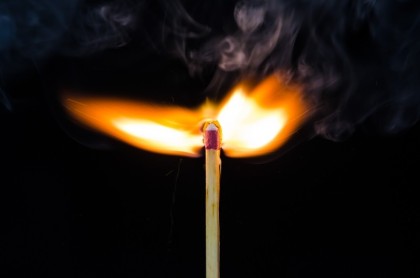Martial arts, as traditionally taught, has always been about life and death. For millennia it has presented the practitioner with a way to live better – as well as how to die better.
 In our context, “life” is to survive and then to succeed. “Death” is to live a memorable, fulfilling life with principle, and to be well-prepared to leave a legacy.
In our context, “life” is to survive and then to succeed. “Death” is to live a memorable, fulfilling life with principle, and to be well-prepared to leave a legacy.
My friend is a professional martial arts practitioner and student, and he had to face these questions when his own teacher passed away. What happens to the teacher’s legacy? His answer was to take over the dojo to insure that the work would continue.
We feel this as students, as well as parents and children. What happens when the father or mother dies? If the parent did a good job, then the child will go on throughout their life successfully. They’ll mourn their parents death, but they won’t be incapable of moving forward. That’s one of our jobs as parents – to prepare our children.
As teachers, it’s our responsibility to carry on this tradition and prepare the students for our eventual death. My friend’s teacher did that.
And I think that a lot of us as students, when the teacher dies, we like think, “Oh, I’m going to go someplace else. And I’m going to do something different.” Or worse yet, “I’m going to quit.”
You and your teachers and you and your classmates are in a co-creative relationship. We all need one another. And that co-creation is founded in the martial arts. If one component of that relationship dies, then we’re presented with the question of what we do next.
Some flee. My friend’s response was more mature: to carry on the legacy that was his teacher. He didn’t abort mission and go someplace else. He kept on.
When we make a decision like this, something rather profound happens – we actually become the successor. Which is what he did: he is now the successor of the style.
This is not a black and white idea. We are not only talking about the literal work of running the teacher’s dojo, but maintaining the fire that he or she started in the world. That fire, when tended, can continue to provide heat long after the original match has gone out.
Every time I think about it, I remember that my own teacher will eventually die. And by the way, so will I. The translation is that we have to be concerned about what we’re doing now to be well-prepared to tend the fire.
This is the preparation for living, as well as for dying. It’s the martial way. We decide in this moment how ready we’ll be to advance the legacy and keep the fire burning.
For more about our larger project of cooperative Jiu-Jitsu and martial arts training, visit the Brooklyn Brazilian Jiu-Jitsu (Brooklyn BJJ) website here.
Please help us…share this post!